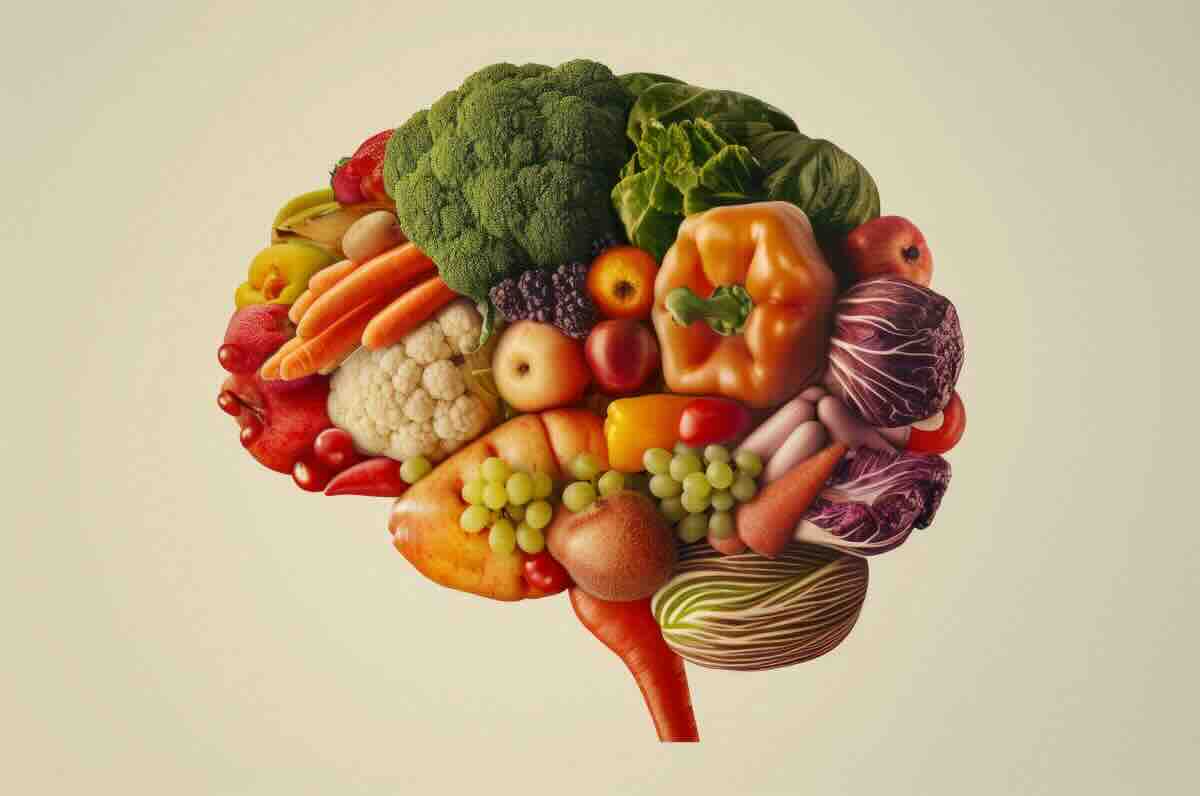The Gut-Brain Connection
Two Brains Are Better Than One

Did you know that there is a strong connection between our gut and our brain? Our mental health impacts our gut health, and our gut health affects our mental well-being. In fact, the gut is often called “the second brain.” Research shows that the gut microbiome plays a crucial role in regulating our mood through chemical reactions during digestion. Poor digestion can even lead to increased stress. This means that maintaining a healthy diet is essential not only for physical health but also for mental wellness. To dive deeper into the science behind the brain-gut connection and discover habits that can strengthen it, check out the below blog by Dr. Anna Hickner.
By Dr. Anna Hickner
When I talk to patients about general well-being, I start with the basics: proper nutrition, restful sleep, adequate movement, and hydration. With the holidays approaching, however, one or more of these pillars usually become compromised for many people. This often starts with increased food and alcohol which, in turn, can create a spiral of poor sleep, less time and energy to exercise, and ultimately a reliance on additional caffeine to keep going. But it does not have to be this way! Being conscientious about what we consume as we approach a stressful and busy season is not simply an act of self-care, but also an opportunity to shift how we can partake in festivities and events without feeling adverse repercussions. And we can recruit both of our brains to achieve this.
“Both?” you ask.
Yes, both.
Introducing Your ‘Second Brain’
By now, it is well known that gut health is important for mental well-being. Over the last decade, there has been an uptick in research investigating what some people refer to as the ‘second brain,’ and the connection of the gut-brain axis (GBA,) which links our central nervous system (CNS) to our enteric nervous system (ENS). This connection is bi-directional, so certain foods, along with the timing and quantity of what you eat, can impact your mind and mood, just as stress and anxiety can manifest as a physical condition. While this time of year presents many opportunities for indulgence that are worthy of enjoyment, the other pillars of rest, physical activity, and hydration are not usually enough to maintain a stable foundation if your nutritional input consistently works against you.
How Your Gut Health Affects Your Gut Health
There is a lot of evidence that gut microbiome and inflammation impact our mood not only because it interacts with the CNS on a chemical level, but also because problematic digestion is stressful. Gastrointestinal issues, such as IBS or colitis, can be medically diagnosed and treated but even the standard effects of bloating or over-consumption of sugar, caffeine, and alcohol can create substantial mental and physical discomfort. This goes beyond a sugar crash or a hangover because what we eat can impact our mood and exacerbate symptoms of anxiety and depression, just as an emotional event that causes us stress can negatively impact our body and create head or stomach aches, tension in the shoulders and back, etc.
How Your Mental Health Affects Your Gut Health
When we get stressed, the HPA (hypothalamus-pituitary-adrenal) axis kicks into action and secretes hormones into the body to facilitate the fight-or-flight response in the event that we need to act. This response is a survival mechanism that dates back to our early ancestors, enabling them to react swiftly to real threats as a means of self-preservation. In today’s age, real versus perceived threats can be unfortunately more nebulous to detect, but our bodies have not evolved as quickly as society and technology. Because many of us have adapted to a hyper-connected world, our bodies might be responding to many things that trigger stress and the subsequent physical response, whether or not there is a legitimate threat. Thus, when we feel ongoing activation of fear or anxiety, our bodies are on hyper-alert which can ultimately turn into a chronic physical condition when we are habitually stressed or triggered. In short, how our brain works affects how our stomach operates, and vice versa.
Enhancing Your Gut-Brain Connection
Incorporating food in cultural festivities and well-being is universal. In fact, Ayurveda, India’s ancient system of medicine, believes healthy digestion is foundational for sound physical, psychological, emotional, and even spiritual well-being. While Ayurveda is outside of what we offer at the Barclays Health Center, anyone who has difficulty with their mood or concerns about their digestion and nutrition can meet with one of our primary care providers to discuss their mental health or gastrointestinal concerns during an annual wellness exam. Health coaching visits are also available for Barclays employees interested in ongoing guidance in fortifying wellness pillars for optimal well-being. And because this time of year is all about connecting to who and what is important, why not start with the gut-brain connection?
After all, they say two brains are better than one, so perhaps it’s time that we consult both.